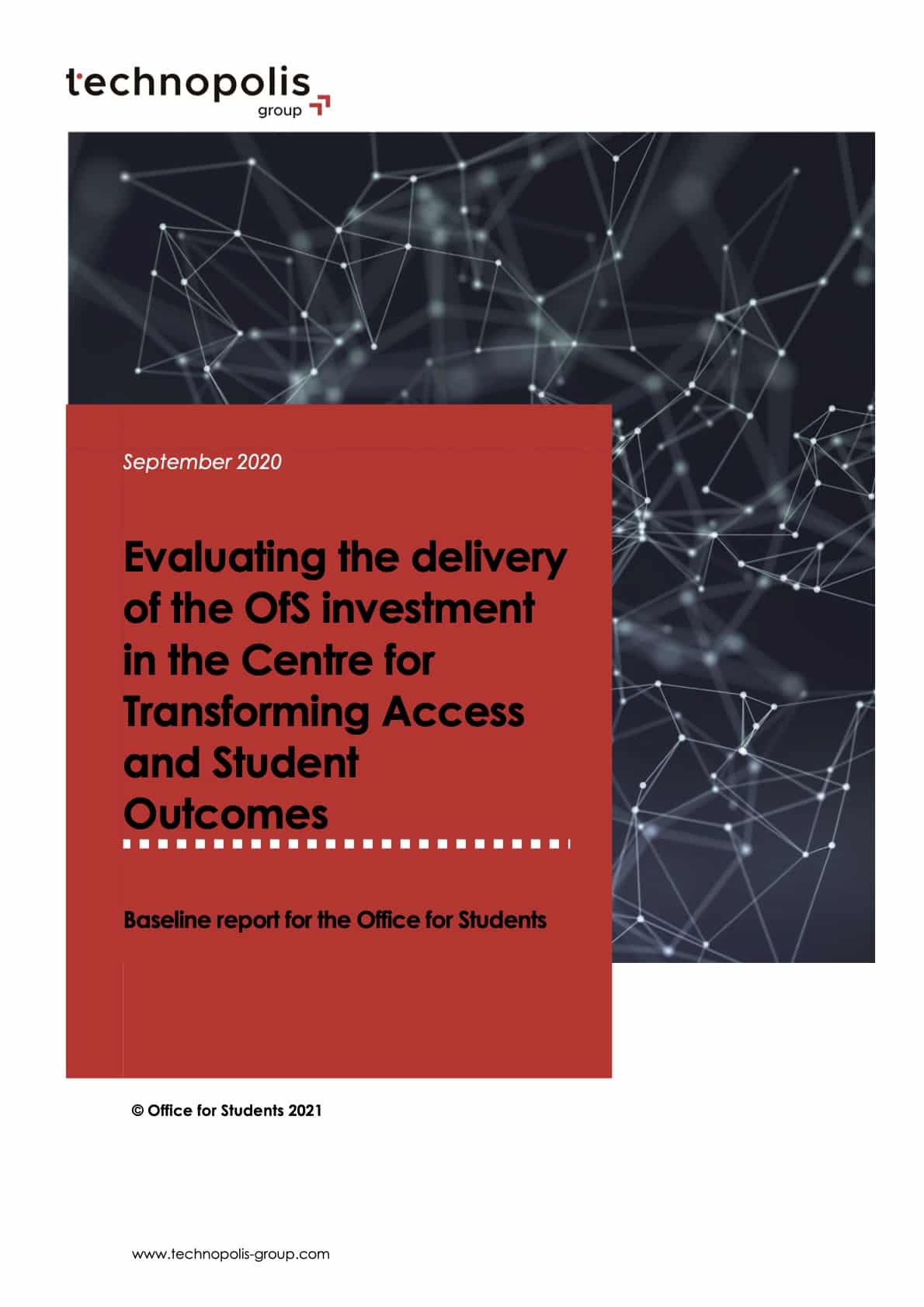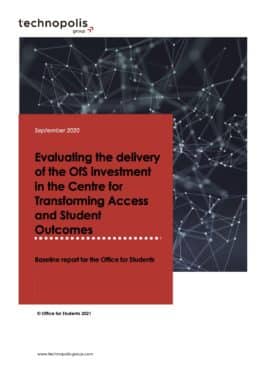Evaluating the delivery of the OfS investment in the Centre for Transforming Access and Student Outcomes
Date de publication : 5 février 2021 | langue de rapport : EN
The Office for Students (OfS) has commissioned Technopolis Group to evaluate the Centre for Transforming Access and Student Outcomes in Higher Education (TASO) over the period of 2019-2024. The main aim of this report is to set a baseline for the evaluation of TASO. It is important to understand the situation in the higher education sector at the start of TASO’s operation so that the subsequent impact assessment of TASO (planned for 2023) measures the change since the baseline and can more robustly attribute change to TASO when answering the evaluation questions set out in the invitation to tender, our proposal and the inception report for this evaluation.
TASO is an independent hub for higher education professionals to access research, toolkits and evaluation guidance to eliminate equality gaps within 20 years. Set up by a partnership of King’s College London, Nottingham Trent University and the Behavioural Insights Team, TASO is an evidence centre and a member of the UK What Works Network. TASO is a crucial part of the OfS strategy for access and participation. Its role is to provide support and guidance to higher education providers (HEPs) to help them learn and adapt their practices.
The research activities of TASO are concentrated into three themes (a fourth theme was being chosen at the time of the baseline). Each theme follows an evidence cycle of Phases 1–3. In Phase 1 gaps are identified through a synthesis of current evidence which is systematically collated and considered. Phase 2 is the generation phase where original research is commissioned / conducted in-house to fill gaps in current knowledge base. Phase 3 is the review and dissemination phase.
The main methods applied in the baseline phase of the evaluation project included an online survey with higher education providers (HEPs) in England, telephone and online interviews with wider sector stakeholders and with selected HEPs, a review of access and participation plans (APPs), and a literature review. For the review of the various segments of APPs, we combined manual review (by a member of the evaluation team) with automatised semantic analysis. The various sources of evidence were used in the analysis to triangulate findings in various parts across this report.




